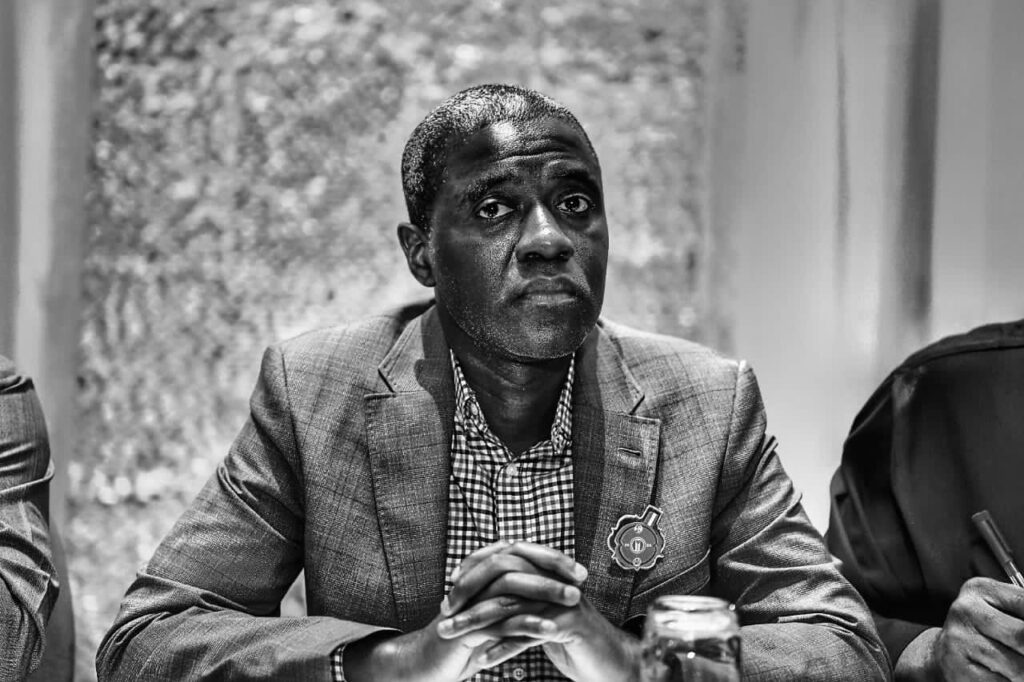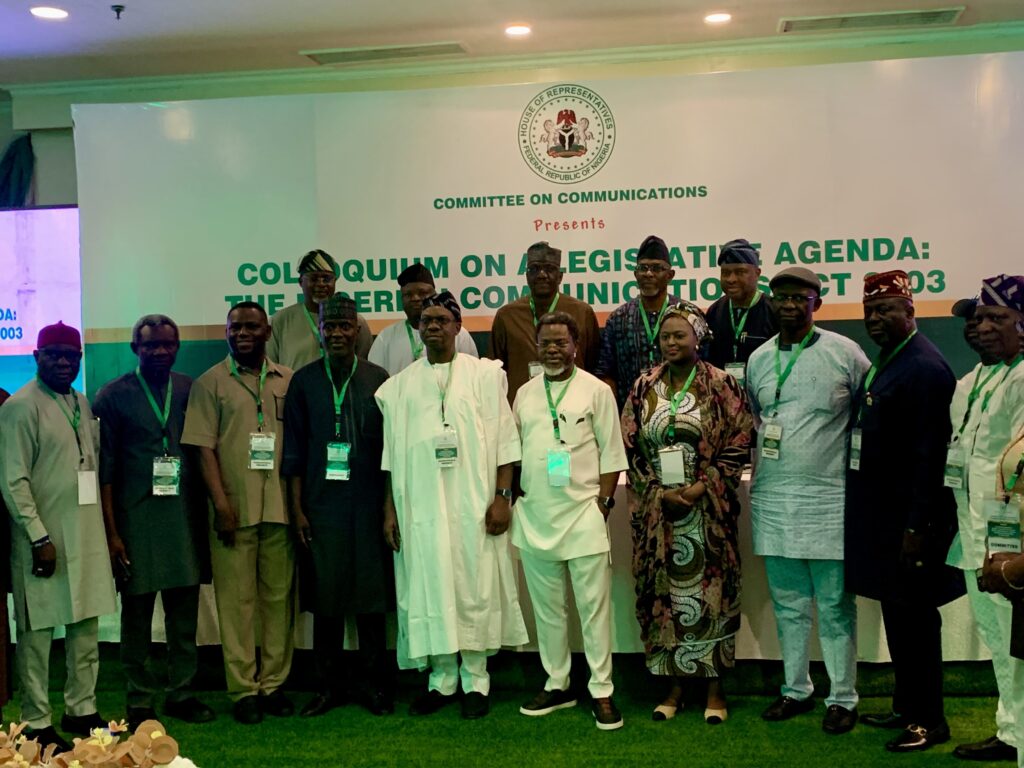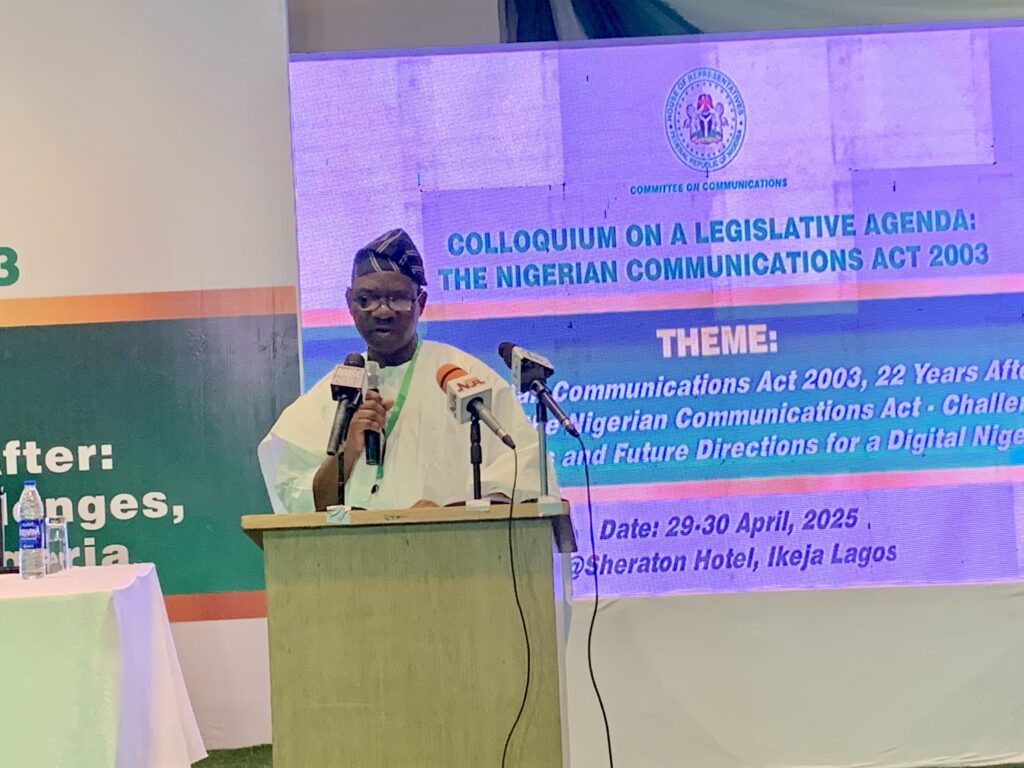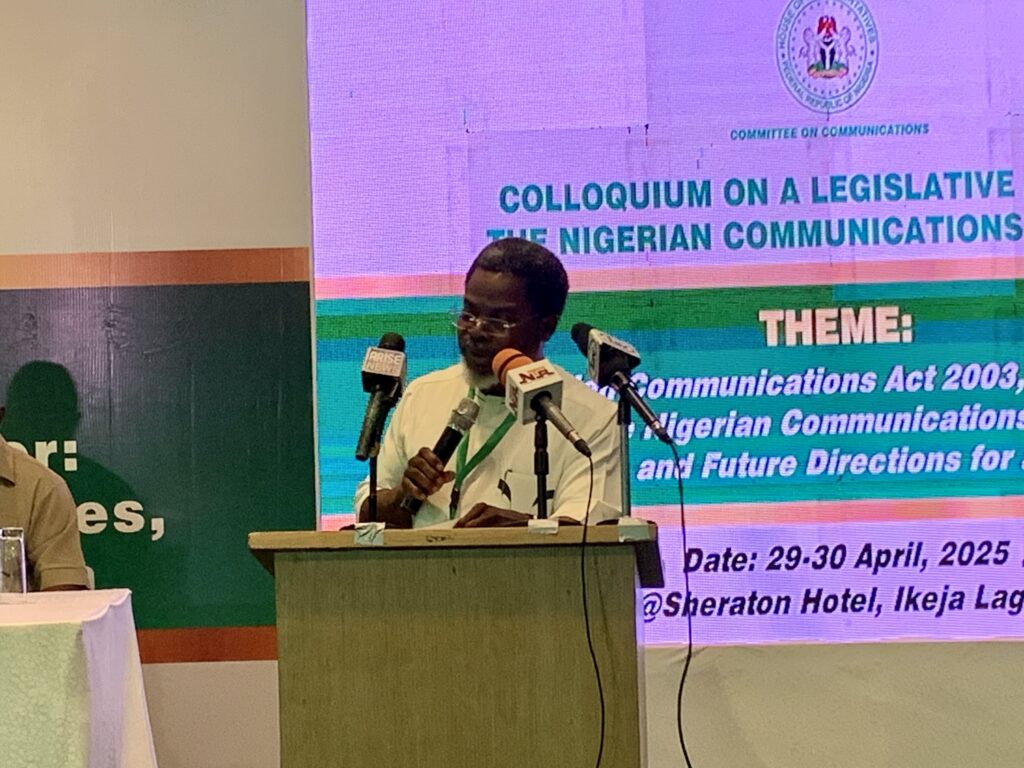Nigeria is launching a major push to reform its 2003 telecommunications law to align with the fast-changing dynamics of the digital economy, as top government and industry players gathered in Lagos on Tuesday to chart a new path for the country’s telecoms future.
The landmark Nigerian Communications Act 2003, which has underpinned telecom regulation for over two decades, is now under review as stakeholders say the time has come for a sweeping update. The conversation is gaining momentum at a high-level colloquium hosted by the House of Representatives Committee on Communications, held Tuesday at the Sheraton Hotel in Ikeja, Lagos.
Themed “The Nigerian Communications Act 2003; 22 Years After—Challenges, Opportunities and Future Directions for a Digital Nigeria,” the event is spotlighting the law’s legacy while calling for reforms to power Nigeria’s next digital leap.

From just under 300,000 mobile lines in 2001 to over 150 million subscribers by 2024, Nigeria’s telecoms revolution is contributing about 13.94% to GDP, fuelling transformations in mobile banking, e-commerce and digital education. Yet, Maida warns that infrastructure deficits, unreliable power supply, and high right-of-way costs are slowing growth in remote areas.
NCC: Nigeria’s telecoms law needs forward-thinking overhaul
Dr. Aminu Maida, Executive Vice Chairman of the Nigerian Communications Commission (NCC), affirms that while the existing Act has helped build one of Africa’s largest telecoms markets, it now requires a forward-thinking overhaul.
“While the Nigerian Communications Act of 2003 was visionary for its time, the realities of 2025 require us to re-examine its provisions to ensure they remain fit for purpose,” Maida says.
He underscores that the law must now address critical gaps, including rural connectivity and rising cybersecurity threats.
“In Nigeria, while urban centres enjoy robust connectivity, rural and underserved communities still grapple with limited access, highlighting the persistent digital divide,” the NCC boss explains. “Cybersecurity threats loom larger as our reliance on digital platforms grows, with Nigeria recording a significant uptick in cyber-attacks targeting critical sectors.”
From just under 300,000 mobile lines in 2001 to over 150 million subscribers by 2024, Nigeria’s telecoms revolution is contributing about 13.94% to GDP, fuelling transformations in mobile banking, e-commerce and digital education. Yet, Maida warns that infrastructure deficits, unreliable power supply, and high right-of-way costs are slowing growth in remote areas.

“Many Nigerians who have refused to access bank debit cards or accept digital banking options base their reasons on fear of cyber-attacks, expressed as online scams, phishing, and identity theft,” he says. “These have manifested as ‘Yahoo Yahoo’ advance fee fraud, popularly known as 419.”
Innovations in mobile banking, e-commerce, and digital education, Dr. Maida explains, have transformed how Nigerians live and work, making the sector a cornerstone of the country’s economy.
Despite these achievements, challenges remain. he points out that while urban areas enjoy robust connectivity, rural communities still suffer from limited access to telecoms services. “In Nigeria, while urban centres enjoy robust connectivity, rural and underserved communities still grapple with limited access, highlighting the persistent digital divide. Infrastructure deficits, including inadequate power supply and the high cost of right-of- way approvals, are hindering network expansion.”
The call for reform is also coming from the legislature. Hon. Dr. Abbas Tajudeen, Speaker of the House of Representatives—represented at the event by Hon. Ibrahim Ayokunle Isiaka—backs efforts to revise the Act to reflect emerging digital realities.
“The digital economy in Nigeria is rapidly growing, with financial inclusion made possible through digital banking and payment systems,” Isiaka notes. However, he raises alarm over cybersecurity fears that are discouraging millions of Nigerians from embracing digital finance tools.
“Many Nigerians who have refused to access bank debit cards or accept digital banking options base their reasons on fear of cyber-attacks, expressed as online scams, phishing, and identity theft,” he says. “These have manifested as ‘Yahoo Yahoo’ advance fee fraud, popularly known as 419.”
He stresses how digital technologies like mobile banking have significantly lowered transaction costs and improved financial inclusion for millions of Nigerians. “The digital economy in Nigeria is rapidly growing, with financial inclusion made possible through digital banking and payment systems,” he says.
According to the lawmaker, “the progress being recorded in the digital communication sector is, however, blighted by cybersecurity challenges.”
According to him, “The International Telecommunication Union (ITU) states that only about 37 percent of the population in low-income regions of the world is online, and that also includes Nigeria. The major reason for this is fear. Many Nigerians who have refused to access bank debit cards or accept digital banking options base their reasons on fear of cyber-attacks, expressed as online scams, phishing, and identity theft. These have manifested as ‘’Yahoo Yahoo’’ advance fee fraud, which is popularly known as 419, and the reality of stealing other people’s identities for purposes of stealing from their bank accounts is a great concern worldwide.”
The House Committee on Communications, led by Hon. Peter Ohiozojeh Akpatason, is using the colloquium to build consensus for legislative reform.
“This event is providing a platform for stakeholders to share experiences, insights, and recommendations,” Akpatason says. “We must consider revising the Act to address emerging issues, such as 5G, artificial intelligence, and blockchain.”

According to him, the event will provide a platform for stakeholders to share experiences, insights, and recommendations with a view to:
– Identifying areas for improvement in the Act.
– Develop strategies for promoting digital growth and innovation.
– Foster collaboration among industry stakeholders.
Akpatason stresses the need for a law that embraces innovation and investment while supporting affordable access and infrastructure growth.
“We must consider strategies to promote digital entrepreneurship, innovation, and investment, including tax incentives, funding opportunities, and skills development programmes,” he adds.

Nigeria is targeting 70% broadband penetration by the end of 2025, a jump from 42.24% as of 2024, in a bid to ensure that both urban and rural areas enjoy fast, reliable internet. Achieving this goal, stakeholders agree, will require bold legislative reform and massive infrastructure rollout.
Dr. Maida is reaffirming the NCC’s readiness to collaborate on the journey ahead.
“The Commission stands ready to collaborate with the National Assembly, industry stakeholders, and international partners to translate today’s insights into actionable reforms,” the NCC helmsman says. “We envision a revised Nigerian Communications Act that not only addresses today’s challenges but anticipates tomorrow’s opportunities—a framework that positions Nigeria as a leader in the global digital economy.”
According to the NCC EVC, the colloquium is an important step in the process of revising Nigeria’s telecom laws. He calls on all stakeholders, including government officials, telecom operators, and other industry players, to work together on solutions for the future of the digital economy.
As Nigeria charts a new course for telecoms regulation, his message is clear: the future of the digital economy hinges on a legal framework that is as dynamic as the technologies it seeks to govern.
Source of Article

